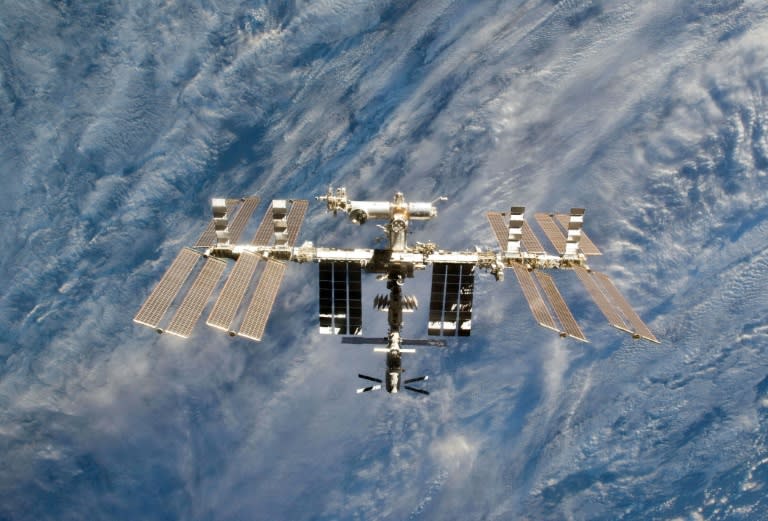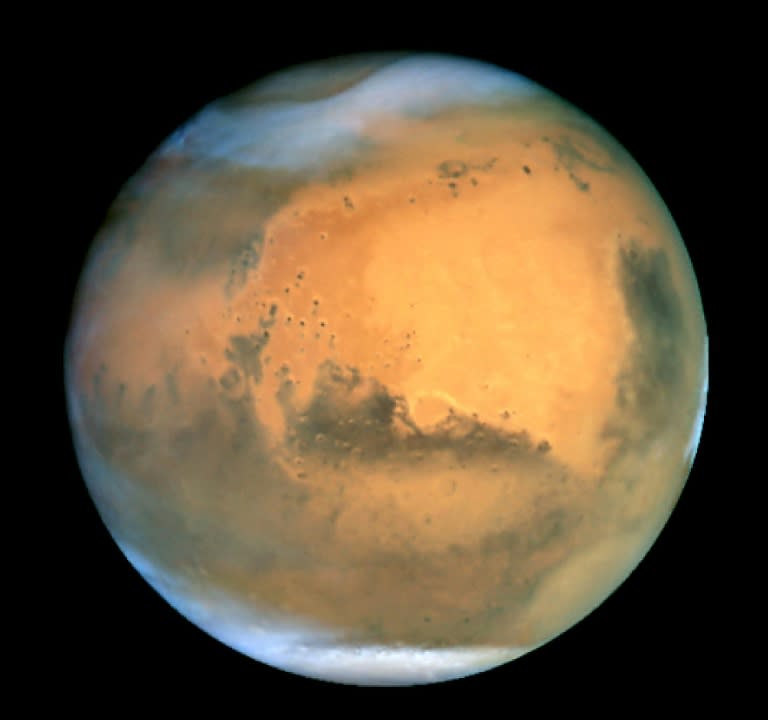Mouse sperm survives in space, but could human babies?
Freeze-dried mouse sperm that spent nine months in space has been used to produce healthy rodent offspring back on Earth, Japanese researchers said this week. But could the same hold true for humans? And if conception were even possible in space, would babies born in zero gravity develop differently than their Earth-bound counterparts? As NASA and other global space agencies work furiously on propelling people to Mars by the 2030s, experts say essential questions of survival on the Red Planet are often overlooked. Rocket scientists have little grasp of how humans would live and breathe on Mars, or if they even could withstand the powerful doses of cosmic radiation they'd receive on the two- to three-year journey. A key component to colonizing other planets -- as SpaceX chief Elon Musk has vowed to do on Mars -- would be having babies, said Kris Lehnhardt, assistant professor in emergency medicine at The George Washington University School of Medicine and Health Sciences. This raises ethical questions about the potential for creating a new race of humans born in deep space or in microgravity. "If your goal is to eventually be a truly space-faring species then this is an essential area to study," he told AFP. "It is a completely unknown area of science." - Mouse sperm - A study in Monday's edition of the Proceedings of the National Academy of Sciences, a peer-reviewed US journal, was an "interesting first step," said Lehnhardt, who was not involved in the research. Mouse sperm was freeze-dried and sent for nine months to the International Space Station, which orbits about 250 miles (400 kilometers) above the Earth. When the shipment returned, lead researcher Teruhiko Wakayama of the University of Yamanashi found the space sperm had sustained "slightly increased DNA damage," after enduring an average daily radiation dose about 100 times stronger than on Earth. Back on Earth, embryos fertilized in vitro with the sperm produced healthy offspring, and grew into normal adults, "suggesting that the DNA damage observed in the space-preserved sperm samples was largely repaired in embryos after fertilization," said the report. But the research revealed little about what might happen in space. "Everything that happened afterward was on the ground again," Lehnhardt said. - Not good for ovaries - For researchers who have examined the effect of deep space radiation on the reproductive organs of female lab mice, the news is not good. A study published in the journal Reproduction this month showed that severe damage to the ovaries of female mice exposed to charged particles is typical of space radiation, "raising concern for premature ovarian failure in astronauts" exposed to deep space travel, it said. One of the study's authors, Ulrike Luderer, a professor of medicine at the University of California, Irvine, said her research shows why the US space agency is worried about the health of deep space astronauts. "These types of exposures can cause early ovarian failure and ovarian cancer, as well as other osteoporosis, cardiovascular disease and neurocognitive diseases like Alzheimer's," she told AFP. "Half the astronauts in the NASA's new astronaut classes are women," she added. "So it is really important to know what chronic health effects there could be for women exposed to long-term deep space radiation." - 'Magical leap' - Lehnhardt said he is not aware of any studies that have shown rodents could successfully get pregnant in space, or that embryos could survive there. "If a four- or eight-cell embryo gets hit by galactic cosmic radiation, the likelihood of that embryo surviving is probably quite low," he said. "If somehow the embryo could get past that stage we actually have no concept of how that would develop." Future experiments could involve sending embryos of various species to the space station. But even then, it might be difficult to tease apart whether any problems in development are due to the absence of gravity, or to radiation, said Lehnhardt. If somehow we took a "magical leap" to the point where an infant could be born in a spaceship, "you have a baby that in theory can't stand or walk, and uses its arms as it is developing for movement," he said, warning of the potential for a new evolutionary chain of humans. Those born or raised on the Moon or Mars, which are considered to be partial gravity environments, might fare better, but still might not be exactly the same as Earth-born people. "Maybe the one-sixth gravity of the Moon, or the one-third gravity of Mars is sufficient for normal bone and muscle development," Lehnhardt said. "That would lead to a similar species then spreading out amongst the solar system."



